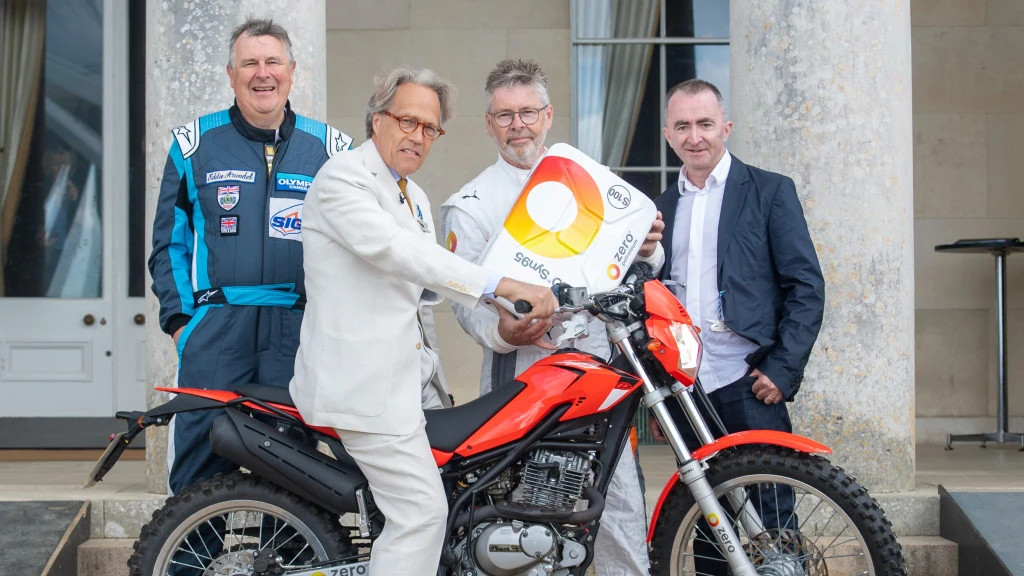
Our Irish correspondent Aidan Sullivan brings us the following report on an upcoming clean fuel that’s a potential game changer, even though (or maybe because) it doesn’t try to challenge the laws of physics:
British company, Zero Petroleum, is set to start production of its new synthetic fuel in June next. from its new plant at Bicester, it’s targeting aircraft and drone operators as customers. It will produce a jet fuel, petrol, and diesel. Production will be modest in June but will be scaled up later in the year.
This company is not claiming to have made a scientific breakthrough, rather it has tweaked known technology, gotten investors involved, and built its plant. The company plans to make pollution free products: “guilt free” fuels, also referred to as “e-fuels”, using water and carbon dioxide, powered by alternatives such as wind and solar via a high energy process known as “petrosynthesis” using a tweaked Fischer-Tropsch reactor.
Zero Petroleum was formed in 2020 by Paddy Lowe, a motor engineer, and Professor Nilay Shah OBE of Imperial College London, with a plan to make synthetic fuels. Lowe worked in the Formula 1 car racing industry, and some of the initial investors are Formula 1 drivers. In 2001 the company gave some of its new synthetic fuel to Britain’s Royal Airforce (RAF) to trial in a light aircraft. That trial proved very successful, so much so that the RAF became a partner in Zero Petroleum. The RAF has now set out targets for ceasing to use conventional jet fuel, eventually to eliminate old fuel in favour of Zero Petroleum’s new synthetic product. Getting the RAF on board as an investor was a significant boost for Zero Petroleum. The RAF most probably had to get the green light from the British Government, and the latter would have been slow to give its approval, until the Government was comfortable that the RAF was not embarking on a risky investment. For a division of the British armed forces to become involved in business is highly unusual if not unprecedented.
In a quite separate deal, Dronamics, A British operator of larger drones says it will only use the fuel produced by Zero Petroleum. The C.E. of the drone company, Svilen Rangelov, talks of a scenario “enabling this fuel to be produced on site”. Its unclear for now whether Dronamics has ambitions to make the fuel themselves. Dronamics is practically a freight airline, operating pilotless 8 metre long drones with a 16 metre wingspan, capable of carrying 350kg payloads at up to 22,000 feet. The company has contracts to fly medicines to remote islands off Scotland.
While aircraft operators are the initial target for this new fuel, ship operators will be another target — both aviation and the marine industries are widely criticized for adding to pollution by using fossil fuels. The auto industry will not be a target, at least for now; Prof. Shah says its fuel will not be suitable for small cars and light vehicles.
The arrival of this new fuel onto the market may extend the life of the internal combustion engine, threatened with a ban by various governments because of pollution caused by fossil fuels. Cars that use a variant of the new fuel will now probably get exceptions. While Prof. Shah plays down car usage of this fuel, in a completely separate move, auto makers Porshe Volkswagon says it’s looking to making its own synthetic fuel. It’s likely to be produced in Argentina where the company has interests, and alternative energy can be established quite cheaply. A time scale for this plan has not been indicated.
Now back to next June, and the launch of the aviation fuel product in Britain. Engines will not need modification to run the new fuel. By the end of this year we should know whether aviation and the marine industry are set to stop polluting, and whether a new British fuel is born.